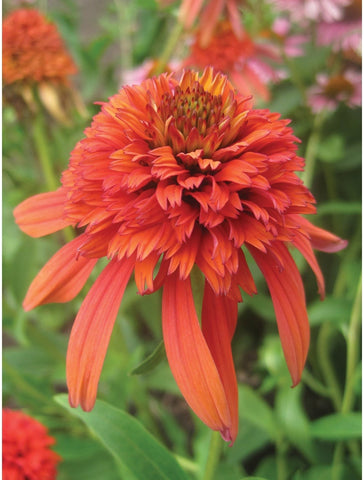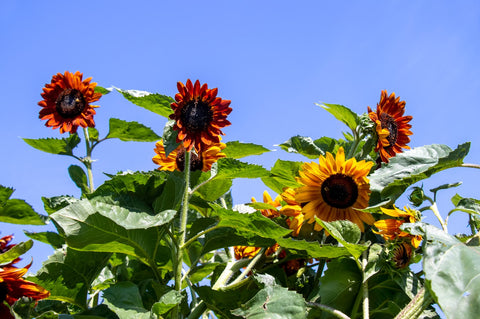Summer can be a challenge, whether you're landscaping, gardening, or both. With the heat and almost no rain, keeping your yard and garden can look challenging. That's why summer almost requires you to consider drought-tolerant and low-maintenance plants.The following content also has some reference value for raised garden beds.
There are several benefits and reasons to consider planting drought-tolerant plants in your garden:
Save water
Drought-tolerant plants are adapted to survive with minimal water requirements. By using these plants, you can greatly reduce your water consumption, which is especially important in times of limited water resources or drought. It promotes responsible water use and water conservation.
Adaptability under challenging conditions
Drought-tolerant plants are better able to withstand hot and dry weather. They have adapted mechanisms for storing water, reducing water loss through special leaves, or growing deep roots to get water from lower soil layers. By using these plants, you can ensure a more resilient garden that can survive and thrive in times of water scarcity.

Low maintenance cost
Once drought-tolerant plants are established, maintenance costs tend to be low. They generally require less pruning, fertilizing, and watering than plants that are more water-dependent. This will save you time and effort in maintaining your garden.
Different regions of the United States have ideal climates and can decide to plant drought-tolerant plants in your garden. As you can see, there are many areas that could benefit from drought-tolerant plants. These plants help save water and reduce the effects of climate change.
Drought-tolerant garden
Drought tolerance doesn't necessarily mean cacti, succulents and rocks. According to the definition of drought tolerance, a plant must be able to withstand high temperatures and dry conditions. When it comes to vegetable gardens, you just want your plants to survive, so choosing the right plants for the hot, dry summer growing season is the first step. Even in the dry summer, planting drought-tolerant vegetables is a great way to keep your garden productive. Here are some drought-tolerant vegetables that can withstand the heat.
Pepper
Most pepper varieties, such as bell peppers, jalapenos, and red peppers, have good drought resistance once established.
Eggplant
Eggplant is a relatively drought-tolerant plant and can handle dry conditions. Look for compact varieties with smaller fruits.
Okra
Okra is a heat-loving vegetable that thrives in hot, dry climates. It has deep roots that help it absorb water from the soil.
Swiss chard
Swiss chard is a leafy green vegetable known for its resistance to drying. It has deep-rooted properties that allow it to tolerate drought.
Kale
Kale is a hardy vegetable that can withstand heat and drought. It has a deep root system that helps it get water from deeper layers.
Zucchini and summer squash
These pumpkin varieties are relatively drought-tolerant and can produce a good harvest even without water.
Pulses (drought tolerant varieties)
Some bean varieties, such as black-eyed beans and cowpeas, have better drought resistance than others.

Sweet potato
Sweet potatoes are drought-tolerant crops that can thrive in hot and dry conditions. Once established, they require little watering.
When growing these vegetables in drought-prone areas, it is vital to provide them with proper soil preparation, mulch and deep watering during their establishment phase.
When the weather gets hotter, crossing native perennials with hardy vegetable varieties is a way to extend the growing season. Covering the ground with compost and mulch means less evaporation and can change the viability of your plants.
Overall, using drought-tolerant plants is a sustainable and practical option for gardeners. It allows you to create beautiful, resilient landscapes while conserving water, saving money, and promoting environmental health.









